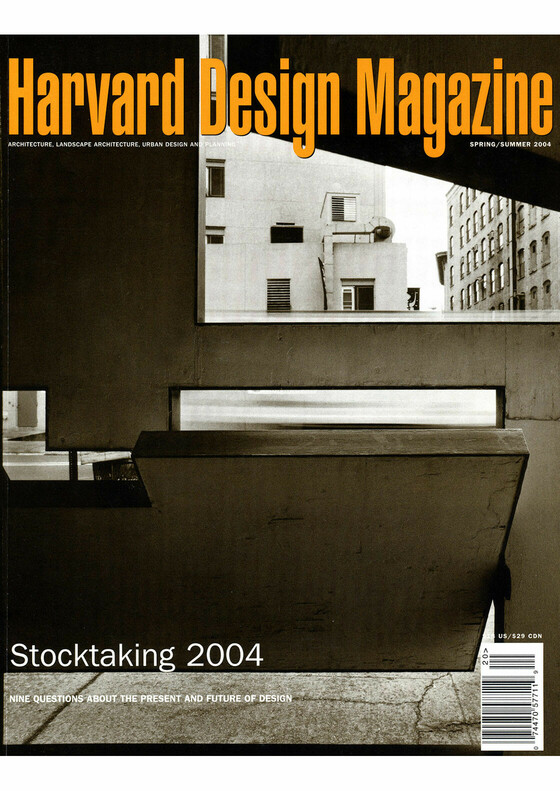Duct Tape Nation: Land Use, the Fear Factor, and the New Unilateralism
20: Stocktaking 2004: Nine Questions about the Present and Future of Design

This issue of Harvard Design Magazine focuses on the present moment in design, where many forty-something architects are impatient to have real progressive effects on the world bust are also well aware of how difficult that is and how one must comprise and collaborate with the powers that be to achieve any improvements. It is about an odd merging of realism with utopianism, about practices that are trying to bite off large chunks of reality to work with, that are eager to collaborate with all sorts of other professionals and generalists (the public, politicians, other design professionals, developers, government, corporations, etc.), even eager to contaminate their professional purity and authorship with the input of these others. Their work is adaptable and incremental in order to be effective.
Rafael Moneo
Andreas Huyssen
Peter del Tredici
Liane Lefaivre
Andrés Duany, David Leatherbarrow, Hal Foster, Kenneth Frampton, Martha Schwartz, Michael Sorkin, Patrik Schumacher, Paul Shepheard, Peter Davey, Stan Allen, Zaha Hadid
Erieta Attali, Joan Ockman
Brian Ladd
Barry Bergdoll
Barry Bergdoll
Barry Bergdoll
Ashley Schafer